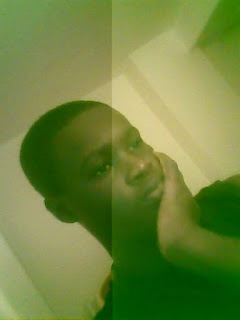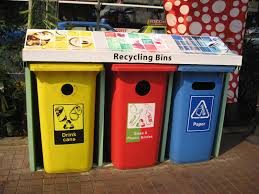TRAINING WORKSHOP FOR BISHARA RADIO BY REACH BEYOND
The workshop kick started with a prayer by the facilitator Joseph Kebbie after which he welcomed us to the training program.
Zooming straight into the workshop he highlighted on the word IMPOSSIBLE which he read as I'M Possible. He explained that the word IMPOSSIBLE does not exist in his dictionary and shouldn't exist in that of the participants too. He explained that ''with God all things are possible'' so if we were created by God then we are possible. He challenged the workshop participants to get rid of the mindset of IMPOSSIBILITIES and put on the mindset of POSSIBILITIES.
He went further to delve into the main subject of the day- SUSTAINABILITY.
He revealed that sustainability is in three forms and it includes SOCIAL SUSTAINABILITY,ORGANIZATIONAL SUSTAINABILITY and FINANCIAL SUSTAINABILITY. He went on to explain each of the forms and highlighted majorly on how a radio station can take advantage of that. For social sustainability, he shared the importance of community ownership,quality of programs and the development of good local content. In terms of organizational sustainability, he shared that a good organizational structure, a clear framework for internal regulation, strategic planning, dynamic and inspiring management and leadership.
Before break the two schools battled it out to convince each other if indeed money was in tamale. Joseph led the discussions and it took a different turn when the guinea fowl business analogy became the topic of the day.Mrs Kebbie chipped in her perspective about wealth existing in the city of Tamale. She says, though its her first visit in Tamale, she has noticed so much business potential in the city for instance the coal/charcoal business.
Joseph explained that instead of running on where the spirit leads the organization, one needs to have a realistic budget. Don't have more expenses than income. An effective financial management structure cannot be over emphasized. There must be a good step by step strategic plan.
| Joseph Kebbie |
He revealed that sustainability is in three forms and it includes SOCIAL SUSTAINABILITY,ORGANIZATIONAL SUSTAINABILITY and FINANCIAL SUSTAINABILITY. He went on to explain each of the forms and highlighted majorly on how a radio station can take advantage of that. For social sustainability, he shared the importance of community ownership,quality of programs and the development of good local content. In terms of organizational sustainability, he shared that a good organizational structure, a clear framework for internal regulation, strategic planning, dynamic and inspiring management and leadership.
It got so interesting when we got to the financial sustainability segment. Joseph then asked the BIG QUESTION: IS THERE MONEY IN TAMALE OR NOT?
The whole room came alive with two schools of thoughts certain. THE YES and NO. Participants then advanced their points.
Joseph explained that instead of running on where the spirit leads the organization, one needs to have a realistic budget. Don't have more expenses than income. An effective financial management structure cannot be over emphasized. There must be a good step by step strategic plan.
Time for BREAK. Guess what, i am bringing you the action. ta da!
Wow, the participants's food look very delicious.
After the break, Joseph raised the question, 'How many of you rear chicken?' which brought us back to the guinea fowl analogy. He decided to answer the question about making money in Tamale saying, "If there was no money in Tamale, would the Chinese be here". Joseph made it clear to us that, after we have talked about everything pertaining to radio, we would discuss entrepreneurship.
We then went straight to talking about funding sources for a radio station such as community based fund generation, commercial side activities, sponsorship, state funding, partnership, donations, advertisement. He broadened the participants minds with different avenues of generating money for a radio station while adding value to the community. He also talked about looking for sponsors for the radio station.
The participants were motivated that the radio station was not the building people see but rather the people that run the station.
It came to the participants attention that radio stations tend to target the few big companies in Ghana than the market women we find everywhere around us. Joseph gave us the Sustainability formula:
- Great Program IDEAS + Great Delivery = More Listeners.
- More Listeners * Great Marketing Team = Interested Businesses
- Interested Businesses + Advertisement = Happy Station
A concern raised by a participant was that there needed to be transparency between management and staff/presenters of the radio station and that as the listener rating of a radio station decreases, then they would need to focus more on getting them back. An encouragement was given by Joseph for him to try the formula. Joseph then directed the workshop into the more practical side where we looked at a case study about another community radio station in India, similar to BISHARA, and what they did to become sustainable.
We saw that, the radio station in the case study charged $0.10 for 5 mins of advertisement every hour for 12 hours. Imagine they had 15 clients, now you do the maths; one thing is sure that they would generate a lot of money. The discussion became alive when the issue about unnecessarily long adverts that people brought to the radio station and their unwillingness to pay for it being aired.
Let's pause a while for a 5 minutes break...
Now for the last part of the workshop Participants minds were stretched when a little maths was done in the case study:
After which a little entrepreneurial advice was given by the workshop facilitator who urged us to think beyond and outside the box of just making our lives so routinized but to think of businesses that would make profit but link the radio station and add value to the community. We should not be scared of the future but we must be ready to take risks, we should look at life squarely and say, I AM POSSIBLE.
With this statement and a closing prayer our facilitator brought the workshop to a close.
THANK YOU!
( thanks Van for helping me finish, follow her on facebook; Vanessa New Creation Aryee ;-) )
THANK YOU!
( thanks Van for helping me finish, follow her on facebook; Vanessa New Creation Aryee ;-) )



Comments